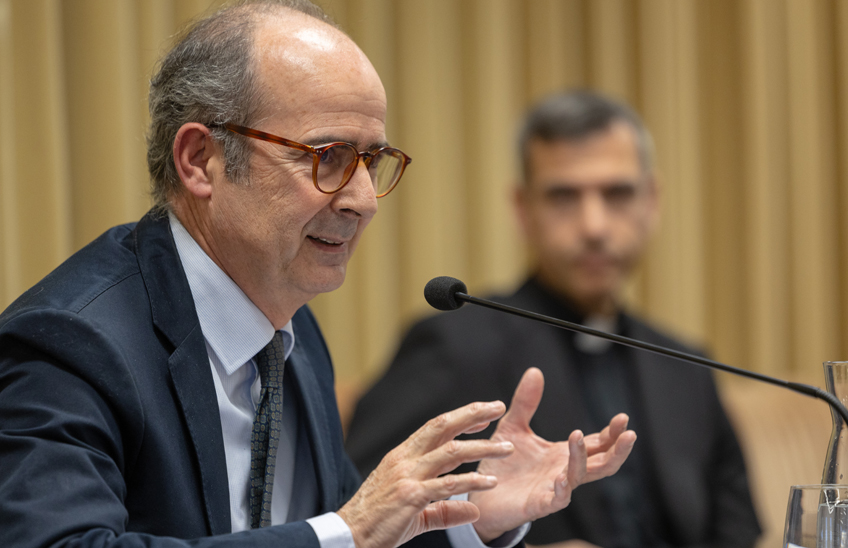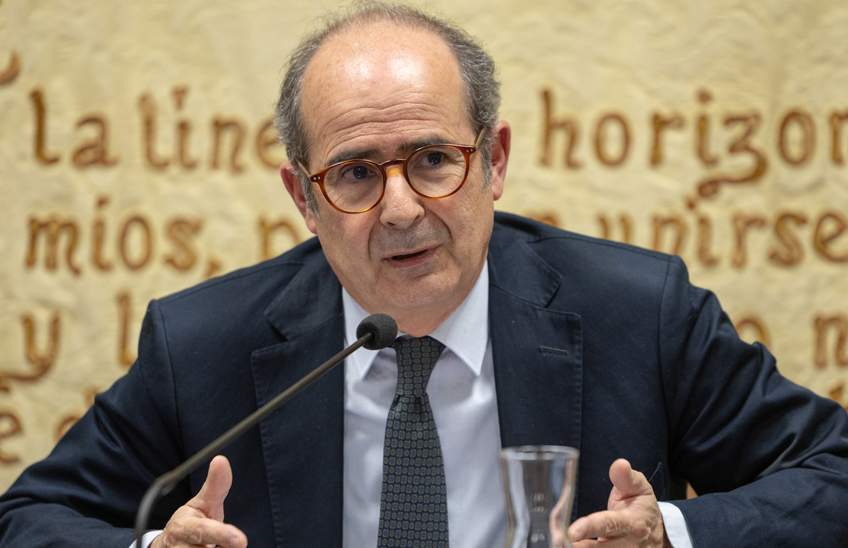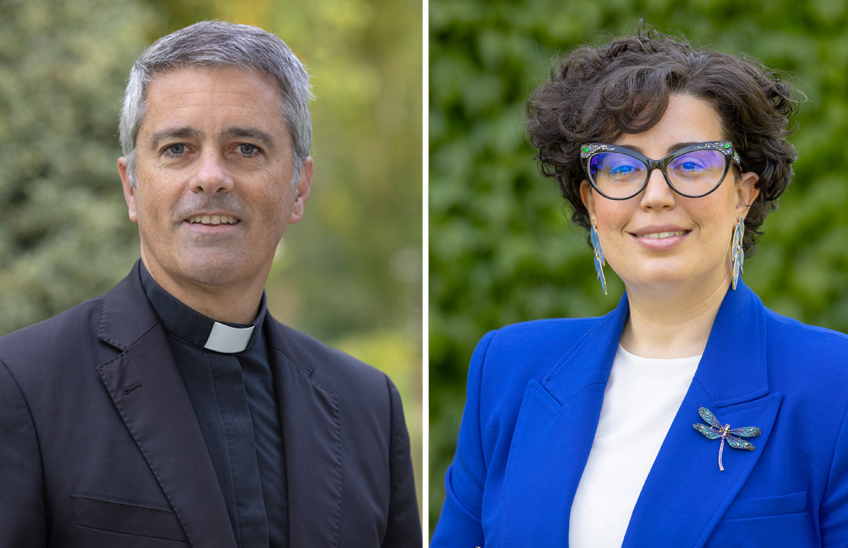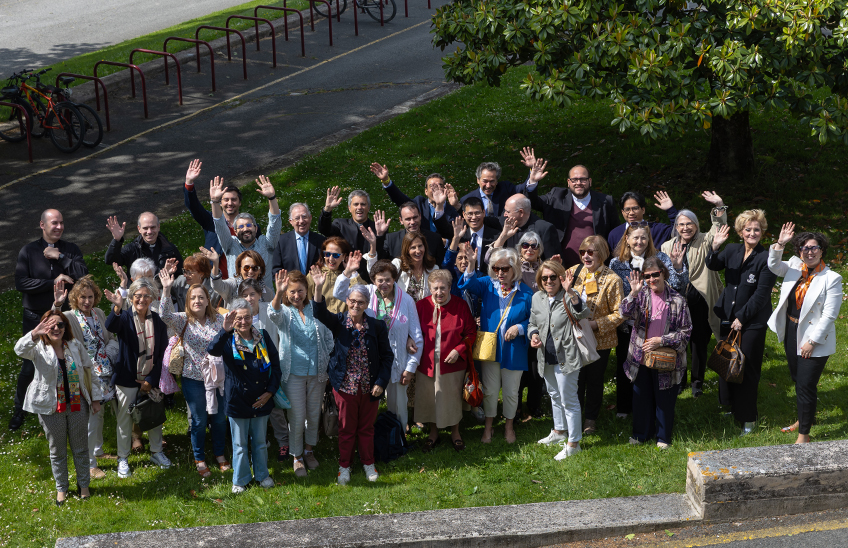"Culture is not just about survival, but about the ability to celebrate, remember and beautify life."
The philosopher Higinio Marin participated in the celebration of the Feast of St. Thomas Aquinas, patron saint of the Schools of Theology and Ecclesiastics of Philosophy.

10 | 02 | 2025
"Culture is not only based on survival, but on the capacity to celebrate, remember and beautify life". So said the philosopher Higinio Marin at the University of Navarra. The President of the CEU Cardenal Herrera University gave the lecture 'The origin of civilization: an archaeology of the human' on February 6, on the occasion of the celebration of the Feast of St. Thomas Aquinas, patron saint of the Schools Philosophy and Philosophy. Ecclesiastical School of Philosophy y Theology.
Professor Marín reflected on what it means to be human and explained that humanity has not only managed to survive, but also to create culture through learning, report and the construction of shared norms. "The transmission of values and the protection of life have been essential for the development of organized societies," he said. The philosopher also highlighted the role of women in this process: "Women are the guardians of humanity's report ".
Another of the ideas he pointed out was that tombs, houses and temples are the foundations of civilization. For Marín, these spaces (tombs for the dead, houses for the living and temples for the sacred) are a very important characteristic of human culture, because they establish the separation between the intimate, the public, the sacred and the profane, creating Structures that organize life in society.

A way of life that balances necessity and creativity
He also argued that, from the prohibition of incest to the first funeral rituals, the ability to remember and give meaning to actions has been essential in social evolution: "Burying our dead was one of the first steps towards civilization. Not only do we recognize death, but we transform it into report and culture".
Another aspect he emphasized was the role of the city in history. He said that, from the first villages to the great metropolises, shared spaces have allowed the creation of laws and social Structures : "Civilization is the great work of humanity: learning to live together with respect and justice," he said.
He also pointed out that human beings have developed a way of life that balances necessity and creativity. "From dance to architecture, civilization arises from the desire to go beyond the merely functional, creating a symbolic world full of meaning," he concluded.


